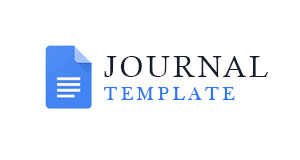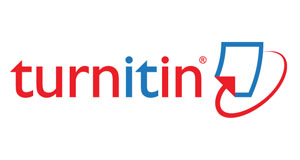HALAL PRODUCTION AT THE MEATBALL HOME INDUSTRY IN BENGKULU CITY
Abstract
Halal certification is a must in the culinary field, especially in supporting Indonesia as a world halal tourism destination. However, the phenomenon that is developing in the city of Bengkulu, there are still many processed foods, especially flour and meat such as meatballs, which are very popular with the public, do not have a halal certificate in their sales In fact, there is only 1 meatball business in Bengkulu that is registered in the 2020 LPPOM MUI halal product shopping. Thus, the purpose of this study is to describe how the process of production of food processed with flour and meat, which is mostly a category of home industry in Bengkulu City, and analyzes it using production theory in Islam. This research method is descriptive qualitative. Research informants were home industry food producers, namely food producers from processed meat and flour. This business does not yet have a brand or production permit from the related party, even though they produce the food every day and it is sold freely in the city of Bengkulu. The research instrument was an open interview guide to dig deeper into the information about the production process that the informant did. Data analysis through restatement, description and interpretation of data. The results of the study found that the meatball home industry food production process in Bengkulu City has not had a halal standard of production as regulated in production theory in Islam. This happened on the background of the lack of knowledge of home industry players about halal production and tended not to consider the issue of halal label and production permits from related parties as important.
Keywords
Full Text:
PDFReferences
Ahmad, A. N., Rahman, A. A. and Rahman, S. A. (2015) ‘Assessing
Knowledge and Religiosity on Consumer Behavior towards
Halal Food and Cosmetic Products’, International Journal of
Social Science and Humanity, 5(1), pp. 10–14. doi:
7763/ijssh.2015.v5.413.
Amaral, J. S. et al. (2017) ‘Quantitative detection of pork meat by
EvaGreen real-time PCR to assess the authenticity of processed
meat products’, Food Control. Elsevier Ltd, 72, pp. 53–61. doi:
1016/j.foodcont.2016.07.029.
Baharuddin, Kasmarini dan Ahmad Kassim, Norliya dan Nordin, Siti
Khairiyah dan Buyong, S. Z. (2015) ‘Understanding the halal
concept and the importance of information on halal food
business needed by potential Malaysian entrepreneurs’,
International Journal of Academic Research in Business and
Social Sciences, pp. 170–180. Available at:
http://uitmprepo.uitm.edu.my/34/.
Batule, B. S., Seok, Y. and Kim, M. G. (2020) ‘An innovative paper-based device for DNA extraction from processed meat products’, Food Chemistry. Elsevier, 321(November 2018), p. 126708. doi: 10.1016/j.foodchem.2020.126708.
Carthy, Jerome, P. & W. (2003) Dasar-dasar Pemasaran. Jakarta: Erlangga.
Faridah, H. (2019) ‘Halal Certification in Indonesia: History, Development and Implementation of Halal’, Halal Product and Research, 2, p. 1.
Fauzia, I. Y. and Royadi, A. K. (2014) PRINSIP DASAR EKONOMI ISLAM, Perspektif Maqasid Syariah.
Gemasih, D. (2014) PEMETAAN TITIK KRITIS HALAL PADA ALUR PROSES RANTAI PASOK PRODUK AGROINDUSTRI BERBASIS DAGING SAPI DI JAWA BARAT (STUDI KASUS: BAKSO SAPI KEMASAN). Universitas Padjajaran. Available at: https://repository.unpad.ac.id/frontdoor/index/index/year/2020/docId/36670.
Hapsari, D. R. et al. (2019) ‘Studi Kasus Pengaruh Logo Halal dan Kesadaran Halal terhadap Keputusan Pembelian Bakso Sapi di Ciawi - Bogor’, Jurnal Agroindustri Halal, 5(2), pp. 196–203. doi: 10.30997/jah.v5i2.1965.
Karim, A. (2007) Ekonomi Mikro Islam. Raja Grafindo Persada.
Kuswandi, B., Gani, A. A. and Ahmad, M. (2017) ‘Immuno strip test for detection of pork adulteration in cooked meatballs’, Food Bioscience. Elsevier Ltd, 19, pp. 1–6. doi: 10.1016/j.fbio.2017.05.001.
Marzuki, S. Z. S., Hall, C. M. and Ballantine, P. W. (2014) ‘Measurement of Restaurant Manager Expectations toward Halal Certification Using Factor and Cluster Analysis’, Procedia - Social and Behavioral Sciences. Elsevier B.V., 121, pp. 291–303. doi: 10.1016/j.sbspro.2014.01.1130.
Mena, B. (2020) ‘Influence of cooking method, fat content and food additives on physicochemical and nutritional properties of beef meatballs fortified with sugarcane fibre’, International Journal of Food Science and Technology, 55(6), pp. 2381–2390. doi: 10.1111/ijfs.14482.
Mohtar, N. M., Amirnordin, N. A. and Haron, H. (2014) ‘Ayamas Food Corporation Sdn. Bhd: A Study on the Factors of Consumer Behaviour towards Halal Product Selection’, Procedia - Social and Behavioral Sciences. Elsevier B.V., 121(September 2012), pp. 166–185. doi: 10.1016/j.sbspro.2014.01.1118.
Purnomo, D., Pujianto, T. and Maulana, R. (2015) ‘Information System Development on Halal Supply Chain Traceability (Case Study: Supply Chain of Beef Meat Balls)’, Journal Of Halal Research, 1(1), pp. 3–5.
Sardiana, A. (2020) ‘Halal Literacy and Halal Product Purchase Dimension: A Preliminary Study’, Insight Journal, (March). doi: 10.13140/RG.2.2.31540.81284.
Seddaoui, N. and Amine, A. (2020) ‘A sensitive colorimetric immunoassay based on poly(dopamine) modified magnetic nanoparticles for meat authentication’, Lwt. Elsevier, 122(November 2019), p. 109045. doi: 10.1016/j.lwt.2020.109045.
Segati, A. (2018) ‘Pengaruh Persepsi Sertifikasi Halal, Kualitas Produk, Dan Harga Terhadap Persepsi Peningkatan Penjualan’, JEBI (Jurnal Ekonomi dan Bisnis Islam), 3(2), p. 159. doi: 10.15548/jebi.v3i2.175.
SNI 3818 (2014) Syarat Mutu Bakso Daging.
Zainuddin, N. et al. (2019) ‘Effect of Halal certification and labelling process on Halal supply chain performance’, International Journal of Supply Chain Management, 8(4), pp. 1075–1081.
Ahmad, A. N., Rahman, A. A. and Rahman, S. A. (2015) ‘Assessing Knowledge and Religiosity on Consumer Behavior towards Halal Food and Cosmetic Products’, International Journal of Social Science and Humanity, 5(1), pp. 10–14. doi: 10.7763/ijssh.2015.v5.413.
Amaral, J. S. et al. (2017) ‘Quantitative detection of pork meat by EvaGreen real-time PCR to assess the authenticity of processed meat products’, Food Control. Elsevier Ltd, 72, pp. 53–61. doi: 10.1016/j.foodcont.2016.07.029.
Baharuddin, Kasmarini dan Ahmad Kassim, Norliya dan Nordin, Siti Khairiyah dan Buyong, S. Z. (2015) ‘Understanding the halal concept and the importance of information on halal food business needed by potential Malaysian entrepreneurs’, International Journal of Academic Research in Business and Social Sciences, pp. 170–180. Available at: http://uitmprepo.uitm.edu.my/34/.
Batule, B. S., Seok, Y. and Kim, M. G. (2020) ‘An innovative paper-based device for DNA extraction from processed meat products’, Food Chemistry. Elsevier, 321(November 2018), p. 126708. doi: 10.1016/j.foodchem.2020.126708.
Carthy, Jerome, P. & W. (2003) Dasar-dasar Pemasaran. Jakarta: Erlangga.
Faridah, H. (2019) ‘Halal Certification in Indonesia: History, Development and Implementation of Halal’, Halal Product and Research, 2, p. 1.
Fauzia, I. Y. and Royadi, A. K. (2014) PRINSIF DASAR EKONOMI ISLAM, Perspektif Maqasid Syariah.
Gemasih, D. (2014) PEMETAAN TITIK KRITIS HALAL PADA ALUR PROSES RANTAI PASOK PRODUK AGROINDUSTRI BERBASIS DAGING SAPI DI JAWA BARAT (STUDI KASUS: BAKSO SAPI KEMASAN). Universitas Padjajaran. Available at: https://repository.unpad.ac.id/frontdoor/index/index/year/2020/docId/36670.
Hapsari, D. R. et al. (2019) ‘Studi Kasus Pengaruh Logo Halal dan Kesadaran Halal terhadap Keputusan Pembelian Bakso Sapi di Ciawi - Bogor’, Jurnal Agroindustri Halal, 5(2), pp. 196–203. doi: 10.30997/jah.v5i2.1965.
Karim, A. (2007) Ekonomi Mikro Islam. Raja Grafindo Persada.
Kuswandi, B., Gani, A. A. and Ahmad, M. (2017) ‘Immuno strip test for detection of pork adulteration in cooked meatballs’, Food Bioscience. Elsevier Ltd, 19, pp. 1–6. doi: 10.1016/j.fbio.2017.05.001.
Marzuki, S. Z. S., Hall, C. M. and Ballantine, P. W. (2014) ‘Measurement of Restaurant Manager Expectations toward Halal Certification Using Factor and Cluster Analysis’, Procedia - Social and Behavioral Sciences. Elsevier B.V., 121, pp. 291–303. doi: 10.1016/j.sbspro.2014.01.1130.
Mena, B. (2020) ‘Influence of cooking method, fat content and food additives on physicochemical and nutritional properties of beef meatballs fortified with sugarcane fibre’, International Journal of Food Science and Technology, 55(6), pp. 2381–2390. doi: 10.1111/ijfs.14482.
Mohtar, N. M., Amirnordin, N. A. and Haron, H. (2014) ‘Ayamas Food Corporation Sdn. Bhd: A Study on the Factors of Consumer Behaviour towards Halal Product Selection’, Procedia - Social and Behavioral Sciences. Elsevier B.V., 121(September 2012), pp. 166–185. doi: 10.1016/j.sbspro.2014.01.1118.
Purnomo, D., Pujianto, T. and Maulana, R. (2015) ‘Information System Development on Halal Supply Chain Traceability (Case Study: Supply Chain of Beef Meat Balls)’, Journal Of Halal Research, 1(1), pp. 3–5.
Sardiana, A. (2020) ‘Halal Literacy and Halal Product Purchase Dimension: A Preliminary Study’, Insight Journal, (March). doi: 10.13140/RG.2.2.31540.81284.
Seddaoui, N. and Amine, A. (2020) ‘A sensitive colorimetric immunoassay based on poly(dopamine) modified magnetic nanoparticles for meat authentication’, Lwt. Elsevier, 122(November 2019), p. 109045. doi: 10.1016/j.lwt.2020.109045.
Segati, A. (2018) ‘Pengaruh Persepsi Sertifikasi Halal, Kualitas Produk, Dan Harga Terhadap Persepsi Peningkatan Penjualan’, JEBI (Jurnal Ekonomi dan Bisnis Islam), 3(2), p. 159. doi: 10.15548/jebi.v3i2.175.
SNI 3818 (2014) Syarat Mutu Bakso Daging.
Zainuddin, N. et al. (2019) ‘Effect of Halal certification and labelling process on Halal supply chain performance’, International Journal of Supply Chain Management, 8(4), pp. 1075–1081.
DOI: https://doi.org/10.24952/tijaroh.v7i1.3175
Refbacks
- There are currently no refbacks.
Copyright (c) 2021 At-tijaroh: Jurnal Ilmu Manajemen dan Bisnis Islam

This work is licensed under a Creative Commons Attribution-ShareAlike 4.0 International License.









